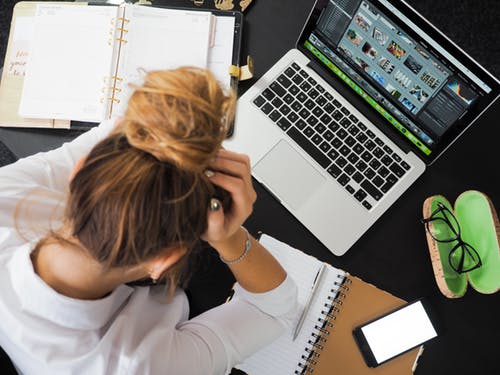Despite their low-power processors and graphics cards, laptops could overheat rather quickly. They have only tiny fans on one or both sides. When your CPU time reaches more than 75 percent most of the time, you can notice that your laptop gets hot quickly. Overheating is bad for laptop components and many people use laptops like their desktop PC. You should be careful when you are using programs that cayse your CPU, graphics cards and hard drive to work hard. Avoid running multiple hardware intensive programs the same time, such as opening Chrome with more than a dozen of tabs and Adobe Photoshop. If you do this, your laptop will work extra hard. Laptop components can work at the maximum capacity, but they shouldn’t do that for an extended period of time, such as more than an hour.
You should also check your surroundings. If you are using a laptop in a hot environment, such as under direct sunlight or near a heater, then, overheating is more likely to happen. The make and model o the laptop also determines whether it will be vulnerable to overheating. As an example, a model may not have proper ventilation and the fan is not powerful enough. As an example, if you purchase a high-end laptop with powerful components, you should expect to see a lot of vent holes and fans that blows out strongly. These may make your laptop to become louder, but it’s better than to allow your laptop to become overheated.
Make sure that you always use laptop in a clean room. Dust and fibers could block the ventilation or making your fans to work less efficiently. Don’t plug in external hard drives or USB flash drive too long, because they may your processor works harder. It is important to know whether you have an overheating problem. You should be able to tell difference whether your laptop overheats or it just gets hot. If you are not sure, then you should check the following:
- Your laptop shuts down suddenly: A well functioning laptop shouldn’t just shut down without any apparent reason. Laptops have fail-safe system that shuts down the device, when a certain temperature is reached.
- Blue Screen of Death: When the interior temperature becomes very high, components will start to work improperly and BSOD will appear.
- Very loud fans: Your laptop fans have variable speed that is adjusted based on the workload and temperature. When the sensor senses high temperature, the system will tell fans to rotate faster, so they can cool down the computer. When fans work harder, they will become louder.
When your laptop overheats, it may suffer permanent damage. You may not have problem when the laptop overheats once or twice, but if your laptop overheats often, components may fail completely. Whatever you do, you should keep your laptop cool. If possible, work on a hard, cool surface. Work near the windows as long as there’s no direct sunlight. House fan directed to your laptop could help a bit in preventing overheating.







